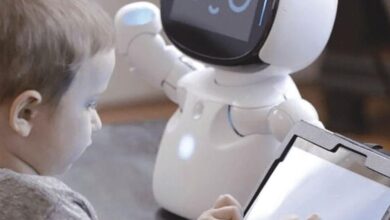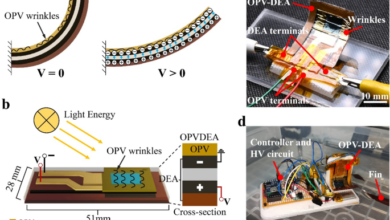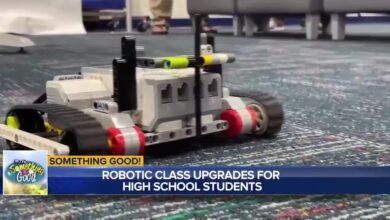Robotic arm development aims to help stroke patients
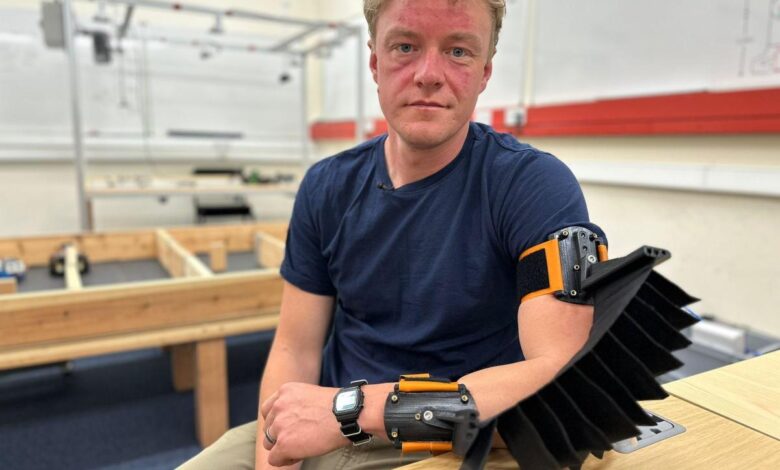
A robotic arm to help people recover from a stroke is being developed at the University of Aberdeen.
The device aims to assist patients to recover safely at home without their physiotherapist.
It is being developed by final year PHD student James Greig who hopes the technology can tackle the high demand for physiotherapy appointments.
The “Soft Robo Arm” is in a development phase before it can go to clinical trials.
It is strapped onto the patient’s arm and helps support them to make basic repetitive movements vital for recovery from a stroke.
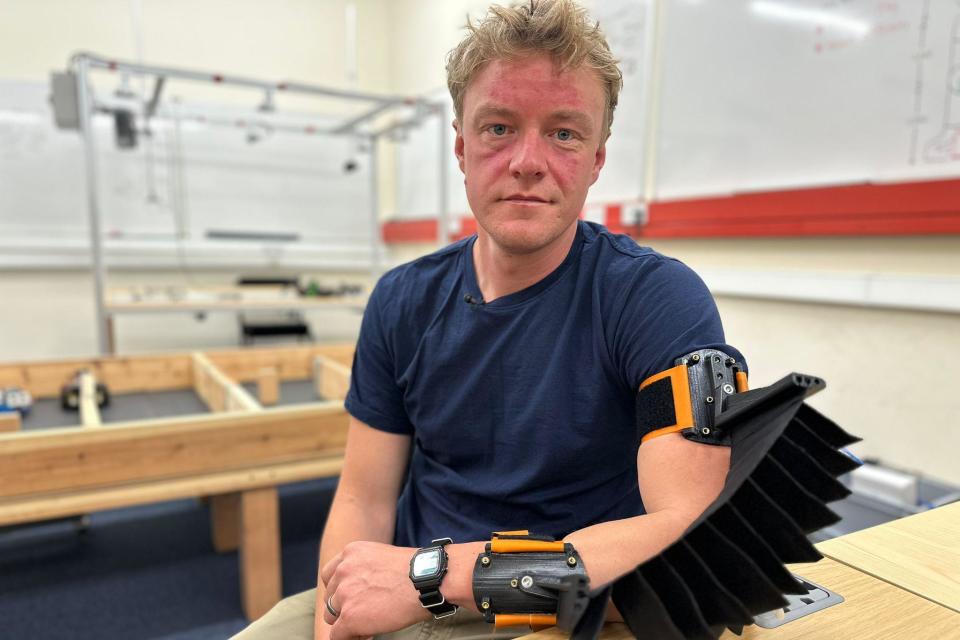
Mr Greig said the technology is “lightweight and cheap” and uses material which is comfortable for the patient to wear.
He told BBC Scotland News he had “no knowledge” of robotics prior to the project.
He said: “The first challenge was designing something big enough and strong enough to move the elbow which takes considerable force.
“The user can go home and get therapy without being one-on-one.
“Physiotherapists could also use this with a class of patients, so that they can work with multiple people at the one time.”
The robotic arm is currently controlled using a laptop but further development could allow a phone or device on a desk to connect.
It tries to mimic the same movements that physios will encourage during sessions.
Air is pumped into the device from a small compressor into strips of material which inflate and press together to help move the limb and recreate something like a bicep curl.
It is not yet clear when the robotic arm will be ready to move onto the trial stage.
Mr Greig said: “It is a medical device, so there’s a lot of testing and we need to do, but there’s no reason this can’t go to market.”

